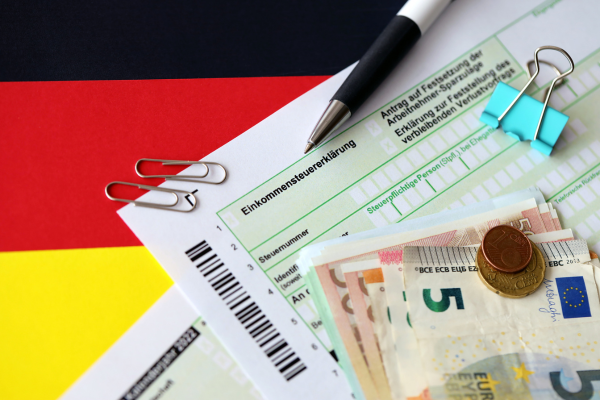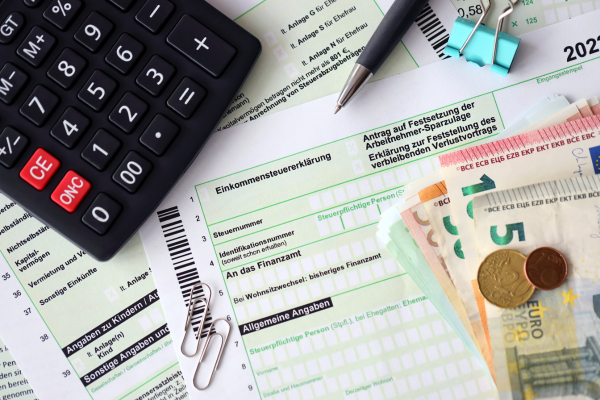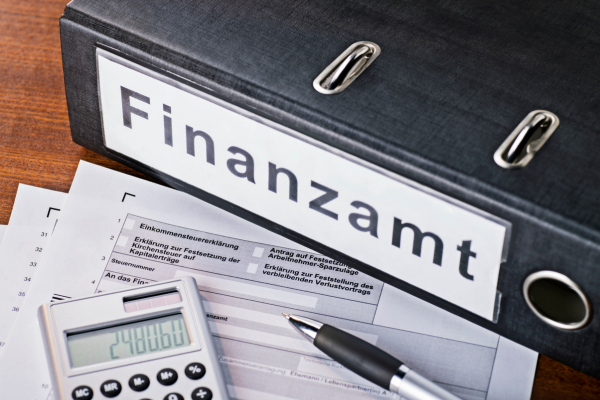How to Deduct Childcare Expenses on Your German Tax Return

Raising a child in Germany comes with its own set of financial challenges, but the good news is that many childcare expenses are tax-deductible. From daycare fees to after-school programs, this blog post will explain how to deduct childcare expenses on your German tax return, helping you save money while ensuring your child receives quality care.
Outline:
- Overview of tax-deductible childcare expenses in Germany.
- How to claim deductions for daycare, kindergarten, and after-school programs.
- Eligibility criteria for deducting childcare costs.
- Required documentation and how to file for these deductions.
- Strategies for maximizing your childcare deductions.
Overview of Tax-Deductible Childcare Expenses in Germany
Childcare expenses in Germany can be significant, but the good news is that many of these costs are tax-deductible. This means you can reduce your taxable income by deducting the expenses you incur for your child’s care, thereby lowering your overall tax liability. In Germany, the most common tax-deductible childcare expenses include costs for daycare (Kindertagesstätte), kindergarten, and after-school programs (Hort or Ganztagsschule).
The German government provides this deduction to support families, making it easier for parents to work while ensuring their children receive proper care. This deduction applies to children under the age of 14, and up to two-thirds of the childcare costs can be deducted, capped at a maximum of €4,000 per child per year.
How to Claim Deductions for Daycare, Kindergarten, and After-School Programs
Claiming deductions for childcare expenses in Germany involves a few key steps:
- Identify Eligible Expenses: Only specific types of childcare are deductible, such as daycare centers, kindergartens, and after-school care programs. Private nanny services may also be eligible, provided they are formally registered and paid through a bank account.
- Gather Documentation: You’ll need receipts or invoices that clearly state the amount paid for childcare services. Payments must be made through traceable methods like bank transfers; cash payments are not eligible for deductions.
- Include in Tax Return: When filing your tax return (Steuererklärung), you can include these childcare costs under “Sonderausgaben” (special expenses). The relevant section is typically labeled “Kinderbetreuungskosten.”
Eligibility Criteria for Deducting Childcare Costs
To qualify for childcare deductions in Germany, several criteria must be met:
- Age of the Child: The child must be under 14 years of age. If the child is disabled, the age limit does not apply.
- Both Parents Must Work or Study: Generally, both parents must be employed or engaged in full-time education. If one parent is a homemaker, the deduction may not be applicable.
- Documentation: You must provide proof of payment, such as receipts or bank statements, showing that the expenses were paid through official channels (e.g., bank transfer).
- Registered Care Providers: The childcare must be provided by a registered institution or individual. Informal arrangements or care provided by family members typically do not qualify for deductions.
Required Documentation and How to File for These Deductions
To successfully claim childcare deductions, you’ll need to prepare and submit the following documentation with your tax return:
- Invoices or Receipts: These should detail the amount paid for each type of childcare service, including the provider’s information and the period covered.
- Bank Statements: Proof of payment via bank transfer is essential, as cash payments are not eligible.
- Tax ID of the Child: Ensure you have your child’s tax ID (Steuer-ID) available, as it will need to be included in your tax return.
- Filing Process: Submit your tax return. When filing, make sure to enter your childcare expenses under the appropriate section for special expenses (Sonderausgaben).
Strategies for Maximizing Your Childcare Deductions
To maximize your childcare deductions, consider the following strategies:
- Keep Detailed Records: Always maintain accurate and detailed records of all childcare-related expenses. This includes keeping copies of invoices, contracts, and proof of payment.
- Optimize Payments: Ensure that all payments are made through traceable methods like bank transfers. This not only makes it easier to claim deductions but is also a requirement for eligibility.
- Review Your Tax Class: If you have significant childcare expenses, consider reviewing your tax class to ensure it’s optimized for your family situation. For example, married couples can choose a tax class combination that might offer better tax benefits.
- Consult a Tax Advisor: If you’re unsure about any aspect of claiming childcare deductions, consulting a tax advisor can help you navigate the complexities and ensure you’re taking full advantage of the available deductions.
- Claim All Eligible Costs: Don’t forget to claim additional costs related to childcare, such as transportation to and from care facilities if these are not reimbursed by your employer.
By understanding the rules and preparing your documents carefully, you can significantly reduce your taxable income and enjoy the financial benefits of these deductions.
Disclaimer:
The information provided in this blog post is for general informational purposes only and does not constitute tax, legal, or financial advice. While we strive to ensure the accuracy and timeliness of the information, tax laws are complex and subject to change. We recommend consulting with a certified tax advisor for advice tailored to your individual circumstances. In terms of financial consultation, we collaborate with German Sherpa Financial Solutions, specializing in services for Expats in Germany. Please note that this content does not serve as tax consulting.
How to Optimize Your Tax Class to Save Money in Germany
How to Optimize Your Tax Class to Save Money in Germany Choosing the right tax…
Exploring Tax Deductions: How to Lower Your Taxable Income in Germany
Exploring Tax Deductions: How to Lower Your Taxable Income in Germany Tax deductions are one…
The Best Tax-Saving Strategies for Families in Germany
The Best Tax-Saving Strategies for Families in Germany Families in Germany can take advantage of…
What Can You Deduct? A Comprehensive List of Tax-Deductible Expenses in Germany
What Can You Deduct? A Comprehensive List of Tax-Deductible Expenses in Germany Knowing what expenses…
Understanding Tax-Free Allowances and Flat Rates in Germany
Understanding Tax-Free Allowances and Flat Rates in Germany Tax-free allowances and flat rates are essential…
Claiming Work-Related Expenses: How to Reduce Your Tax Bill in Germ
Claiming Work-Related Expenses: How to Reduce Your Tax Bill in Germany Work-related expenses are some…
Donations, Insurance, and More: How to Maximize Your Tax Deductions in Germany
Donations, Insurance, and More: How to Maximize Your Tax Deductions in Germany In Germany, certain…
The Complete Guide to Deductible Medical Expenses on Your German Tax Return
The Complete Guide to Deductible Medical Expenses on Your German Tax Return Medical expenses can…
How to Deduct Education and Training Expenses on Your German Tax Return
How to Deduct Education and Training Expenses on Your German Tax Return Investing in education…
Tax Classes in Germany (Steuerklassen): What You Need to Know
Tax Classes in Germany (Steuerklassen): What You Need to Know Germany’s tax system uses tax…
Home Office Deduction in Germany: How to Claim It and Maximize Your Savings
Home Office Deduction in Germany: How to Claim It and Maximize Your Savings With the…
Income Thresholds, Tax-Free Amounts, and Tax Brackets
Income Thresholds, Tax-Free Amounts and Tax Brackets Germany uses a progressive income tax system, which…
Tax-Free Savings in Germany: Making the Most of Your Allowances
Tax-Free Savings in Germany: Making the Most of Your Allowances Tax-free savings allowances in Germany…
How and When to Change Your Tax Class
How and When to Change Your Tax Class Changing your tax class can have a…
Claiming Moving Expenses on Your German Tax Return: What You Need to Know
Claiming Moving Expenses on Your German Tax Return: What You Need to Know Moving for…
Filing Your Taxes in Germany: Your Options
Filing Your Taxes in Germany: Your Options In Germany, tax returns (Steuererklärungen) are usually due…
Who Can Legally Help You File Your Taxes?
Who Can Legally Help You File Your Taxes? In Germany, only certain professionals are authorized…
Top Strategies to Legally Reduce Your Taxes in Germany
Top Strategies to Legally Reduce Your Taxes in Germany Paying taxes is a part of…
Maximizing Your Tax Refund in Germany: Tips and Tricks for Expats
Maximizing Your Tax Refund in Germany: Tips and Tricks for Expats Getting a tax refund…
















